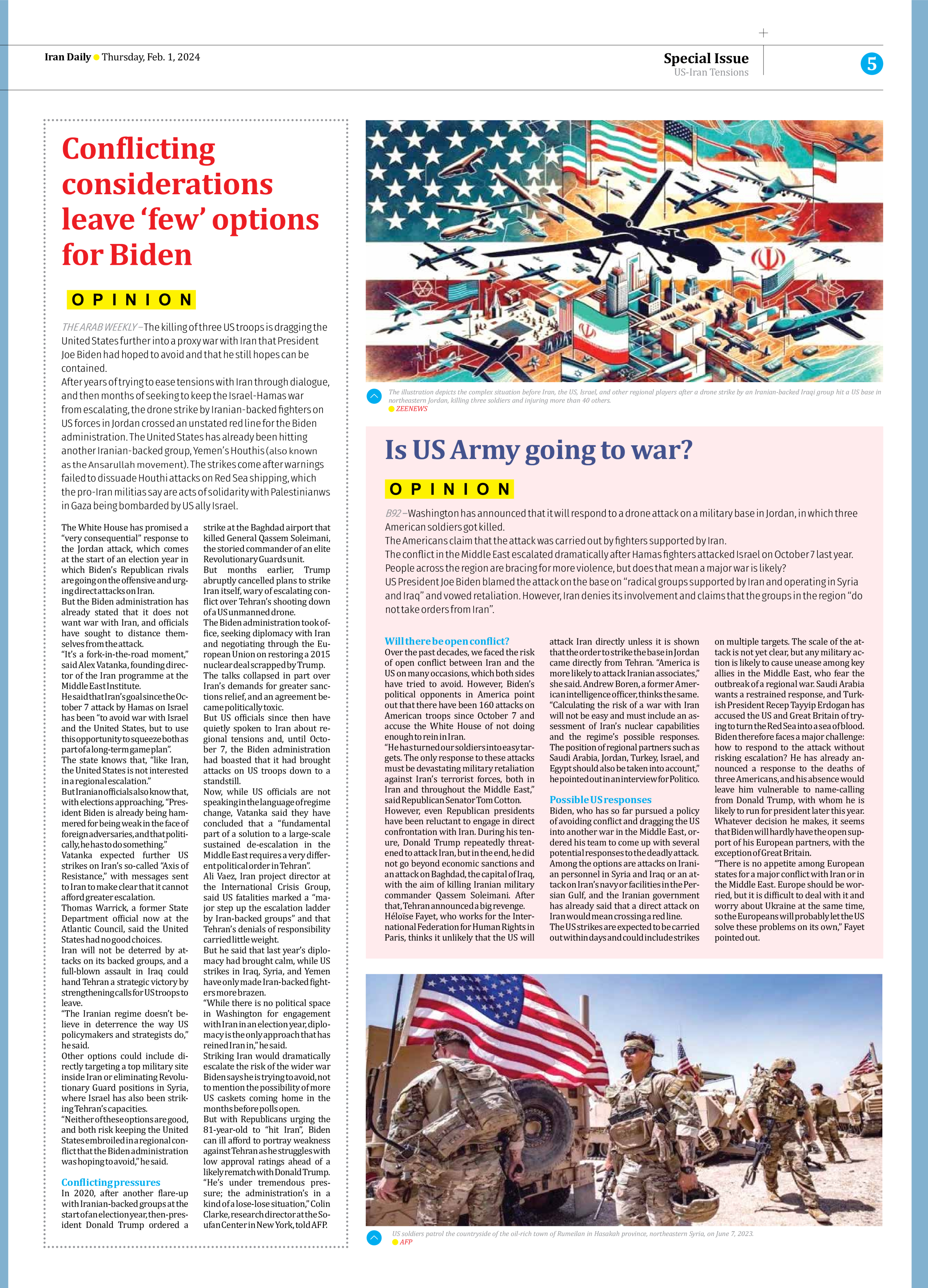
Is US Army going to war?
B92 – Washington has announced that it will respond to a drone attack on a military base in Jordan, in which three American soldiers got killed.
The Americans claim that the attack was carried out by fighters supported by Iran.
The conflict in the Middle East escalated dramatically after Hamas fighters attacked Israel on October 7 last year. People across the region are bracing for more violence, but does that mean a major war is likely?
US President Joe Biden blamed the attack on the base on “radical groups supported by Iran and operating in Syria and Iraq” and vowed retaliation. However, Iran denies its involvement and claims that the groups in the region “do not take orders from Iran”.
Will there be open conflict?
Over the past decades, we faced the risk of open conflict between Iran and the US on many occasions, which both sides have tried to avoid. However, Biden’s political opponents in America point out that there have been 160 attacks on American troops since October 7 and accuse the White House of not doing enough to rein in Iran.
“He has turned our soldiers into easy targets. The only response to these attacks must be devastating military retaliation against Iran’s terrorist forces, both in Iran and throughout the Middle East,” said Republican Senator Tom Cotton.
However, even Republican presidents have been reluctant to engage in direct confrontation with Iran. During his tenure, Donald Trump repeatedly threatened to attack Iran, but in the end, he did not go beyond economic sanctions and an attack on Baghdad, the capital of Iraq, with the aim of killing Iranian military commander Qassem Soleimani. After that, Tehran announced a big revenge.
Héloïse Fayet, who works for the International Federation for Human Rights in Paris, thinks it unlikely that the US will attack Iran directly unless it is shown that the order to strike the base in Jordan came directly from Tehran. “America is more likely to attack Iranian associates,” she said. Andrew Boren, a former American intelligence officer, thinks the same.
“Calculating the risk of a war with Iran will not be easy and must include an assessment of Iran’s nuclear capabilities and the regime’s possible responses. The position of regional partners such as Saudi Arabia, Jordan, Turkey, Israel, and Egypt should also be taken into account,” he pointed out in an interview for Politico.
Possible US responses
Biden, who has so far pursued a policy of avoiding conflict and dragging the US into another war in the Middle East, ordered his team to come up with several potential responses to the deadly attack.
Among the options are attacks on Iranian personnel in Syria and Iraq or an attack on Iran’s navy or facilities in the Persian Gulf, and the Iranian government has already said that a direct attack on Iran would mean crossing a red line.
The US strikes are expected to be carried out within days and could include strikes on multiple targets. The scale of the attack is not yet clear, but any military action is likely to cause unease among key allies in the Middle East, who fear the outbreak of a regional war. Saudi Arabia wants a restrained response, and Turkish President Recep Tayyip Erdogan has accused the US and Great Britain of trying to turn the Red Sea into a sea of blood.
Biden therefore faces a major challenge: how to respond to the attack without risking escalation? He has already announced a response to the deaths of three Americans, and his absence would leave him vulnerable to name-calling from Donald Trump, with whom he is likely to run for president later this year. Whatever decision he makes, it seems that Biden will hardly have the open support of his European partners, with the exception of Great Britain.
“There is no appetite among European states for a major conflict with Iran or in the Middle East. Europe should be worried, but it is difficult to deal with it and worry about Ukraine at the same time, so the Europeans will probably let the US solve these problems on its own,” Fayet pointed out.







